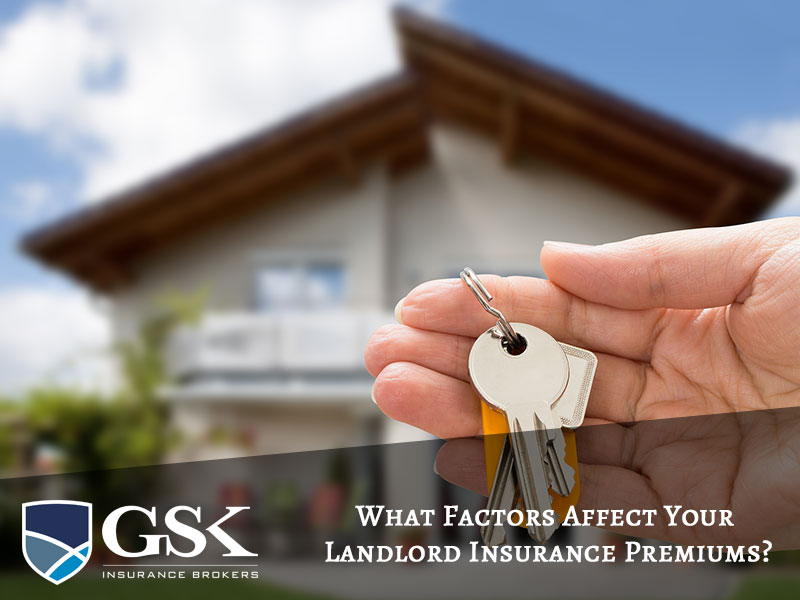Protecting your investment is an important aspect of having a rental property. Landlord insurance is a vital part of mitigating the risks associated with managing an investment property, but it’s important to know what will be covered by your policy, and any exclusions.
Premiums can differ depending on various factors, and it’s worth knowing what can affect the cost of your landlord insurance. Whether you’re a new landlord looking for a suitable insurance policy or you’re considering changing your current level of cover for a new policy, here are a few pointers to help you on your way.
What is landlord insurance?
Landlord insurance is created in order to protect landlords that rent out their home, apartment or investment property. It specifically offers cover for aspects of investment property ownership and renting that home insurance doesn’t.
While homeowners insurance will cover you against natural disasters, theft, water damage and other financial losses, landlord insurance also covers tenant-specific costs.
What is covered by landlord insurance?
● Tenancy cover: Loss of rent, damage or theft by tenants or their guests, rent default, legal expenses of taking tenants to court.
● Building cover: Fires, storm damage, water damage, floods, falling trees, other accidental damage to the building structure.
● Contents cover: Accidental damage to contents including curtains, carpets, light fittings and appliances.
In general, landlord insurance will not cover the wear and tear of a property that comes from regular living, damage caused by insects or rodents, or damage caused by the landlord.
How much is landlord insurance?
The cost of landlord insurance differs between properties and insurance providers. Your insurer will examine factors relating to your investment property in order to produce a premium for you. Factors that can influence the cost of your landlord insurance include:
● Crime rate: If your investment property is in a high risk area for burglary or other crime, your premiums are likely to be higher.
● Price of rent: Your landlord insurance will usually cover loss of rent, so the higher the rent for your tenants, the higher your premium will be.
● Natural disaster risk: If your rental property is in an area that is high risk for natural disasters (e.g. flooding or bushfire), the cost to insure may be higher.
● Replacement costs: When organising landlords insurance, it’s important you know the true cost of replacement should something happen. This includes the replacement of furniture, carpets, blinds and other fittings, as well as the cost to rebuild. The insurer will take all of this into consideration when determining your premium cost.
● Age and condition of the property: If the property is old or in poor condition, it’s likely your insurance premiums will be more costly.
● Level of cover and excess: You can choose which additional extras to include, which can drive the price up. If you select a low excess, your price will go up. Likewise, if you choose a higher excess, the cost of your premium will go down.
● Number of properties: The good news is, if you have several rental properties, it’s likely you can access a multi-policy discount and benefit from reduced premiums.
FAQs about landlord insurance
The terms of landlord insurance cover differs from policy to policy. If you’re ever in doubt about what your policy covers, get in touch with your insurer or broker to avoid any surprises if you need to make a claim. Here are a few FAQs relating to landlords insurance:
What is a Liability Insurance Clause?
If allegations are made against you by your tenant, a legal liability insurance clause will protect you against the financial ramifications if you’re found liable. For example, if your tenant is injured due to property damage that you failed to fix, you may be found liable and responsible for paying compensation to the tenant. A liability insurance clause would cover your legal expenses and the damages you have to pay.
Even if you are very careful to ensure your rental property is well-maintained, sometimes accidents can happen. A liability insurance clause offers another layer of protection against the unknown.
Does a landlord insurance policy cover you if your property is used as an AirBnb?
Many insurance companies offer landlord insurance specifically for properties that are rented out on a short-term basis, such as through AirBnb. Usually there are conditions that need to be met, and cover is only provided for the nights that the property is rented.
While short-term renting sites such as AirBnb and Stayz often offer their own form of protection (e.g. a ‘Host Guarantee’), as warned by the Insurance Council of Australia, a landlord that leases through these short-term sites may not be adequately covered if they don’t have landlord insurance.
Are landlord insurance premiums tax deductible?
In short, yes. As a landlord you are entitled to claim certain costs as a business expense, and insurance on your rental property is one of them. This can help make the necessity of landlord insurance more affordable.
Want to know more about landlord insurance?
If you want to know more about the inclusions of landlord insurance and factors that can impact your premium, contact our qualified team of GSK Insurance Brokers today.
In the event that you need to make a claim, we will liaise directly with the insurer on your behalf. We understand the importance of protecting your investment, and we offer personalised service to get the best possible insurance coverage that suits you.
For all your investment property insurance needs, reach out to our professional team at GSK Insurance Brokers Perth.


